Rural communities of Saravane empowered to overcome food insecurity
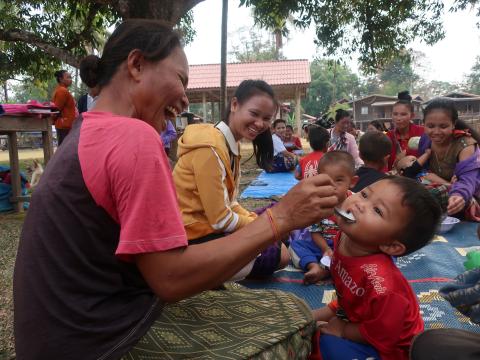
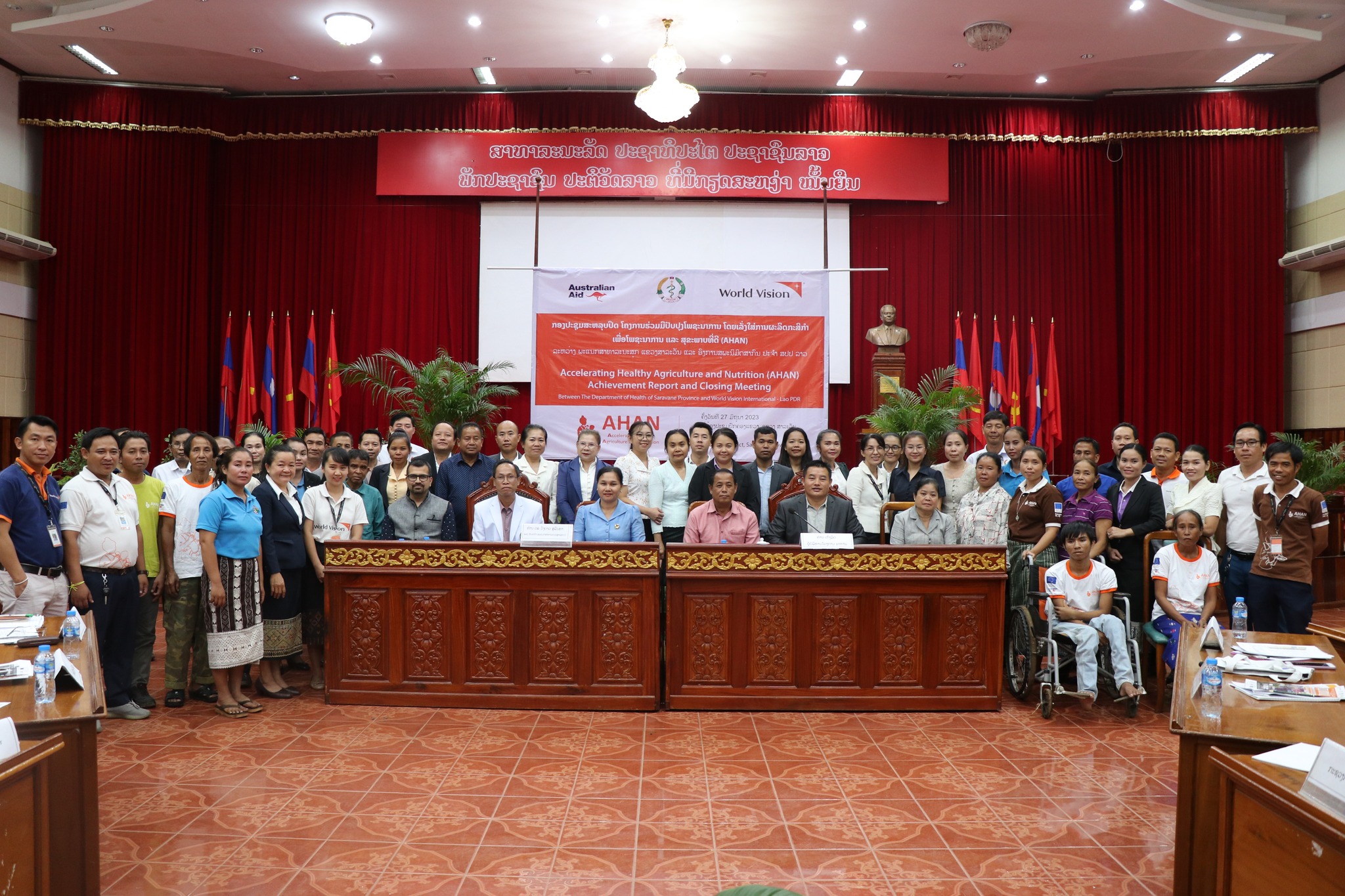
World Vision International – Nutrition stakeholders and rural community representatives gathered in Saravane province to close the Accelerating Healthy Agriculture and Nutrition (AHAN) project.
65 rural communities from Saravane province have seen their lives changed over the past five years, with improved nutrition for the most vulnerable mothers and their children despite all the challenges brought by COVID-19, climate hazards and the recent economic crisis.
On Tuesday 27th of June, the Ministry of Health and World Vision co-chaired the closing meeting of the Accelerating Healthy Agriculture and Nutrition (AHAN) Project in Saravane province, marking the end of a successful integrated nutrition programme in one of the provinces most affected by malnutrition, a few years back. The project, initiated by the European Union through the Partnership for Improved Nutrition (10M0 EUR), received significant funding (over 3M USD) from the Australian Department of Foreign Affairs and Trade (DFAT) through the Australian NGO Cooperation Program (ANCP), to further support the communities of Saravane province, with a strong focus on positive parenting, child development, gender equality and disability inclusion. While the EU-funded part of AHAN closed last September, the last phase of the project supported by DFAT allowed World Vision to cement the gains made by the 65 communities supported in Lao Ngam, Saravane, Taoi and Toumlarn districts, including:
- 75% of families supported becoming food secured all year round, a breakthrough compared to the 5.8% assessed during the baseline of the project (2018) in Saravane, and despite the COVID-19 pandemic;
- Stunting rates in children under five years old have decreased from 51% to 34% in three years, meaning that more than 2 in 3 children have the adequate height for their age;
- Underweight rates in children under five years old have also decreased from 38% to 29%, meaning that more than 3 in 4 children have adequate weight for their age;
- Over the last year, the DFAT-funded project has:
- Trained over 2,600 caregivers on the Go Baby Go parenting model to stimulate the healthy growth of their children;
- Trained 364 Village Water and Sanitation Management Committee members on maintaining the water infrastructures constructed in the past five years;
- Reached over 10,000 children with medical monitoring through outreach mobile clinics;
- Positively impacted the lives of over 1,050 people with disability.
All those achievements and their sustainability are also explained by the strong multi-sector coordination the project has been set up with different ministries of the Government of Lao PDR, including the Ministries of Health, Agriculture and Forestry, and Lao Women’s Union, from the central to the provincial, and district levels, implementing all activities hand-in-hand with Government stakeholders and village authorities to ensure this impact is maintained.
During the closing event, Dr Phonepaseuth Ounaphom, Director General of the Department of Hygiene and Health Promotion, Ministry of Health, shared through a video message: “AHAN positively impacts our department by decreasing malnutrition rate at the village, creating a management system at the grassroots level, and supports better coordination between local village health volunteers and health centres. Even after the project ends, health staff and village volunteers will carry on the work because the project has involved and engaged them from the beginning: this contributes to sustainability.”
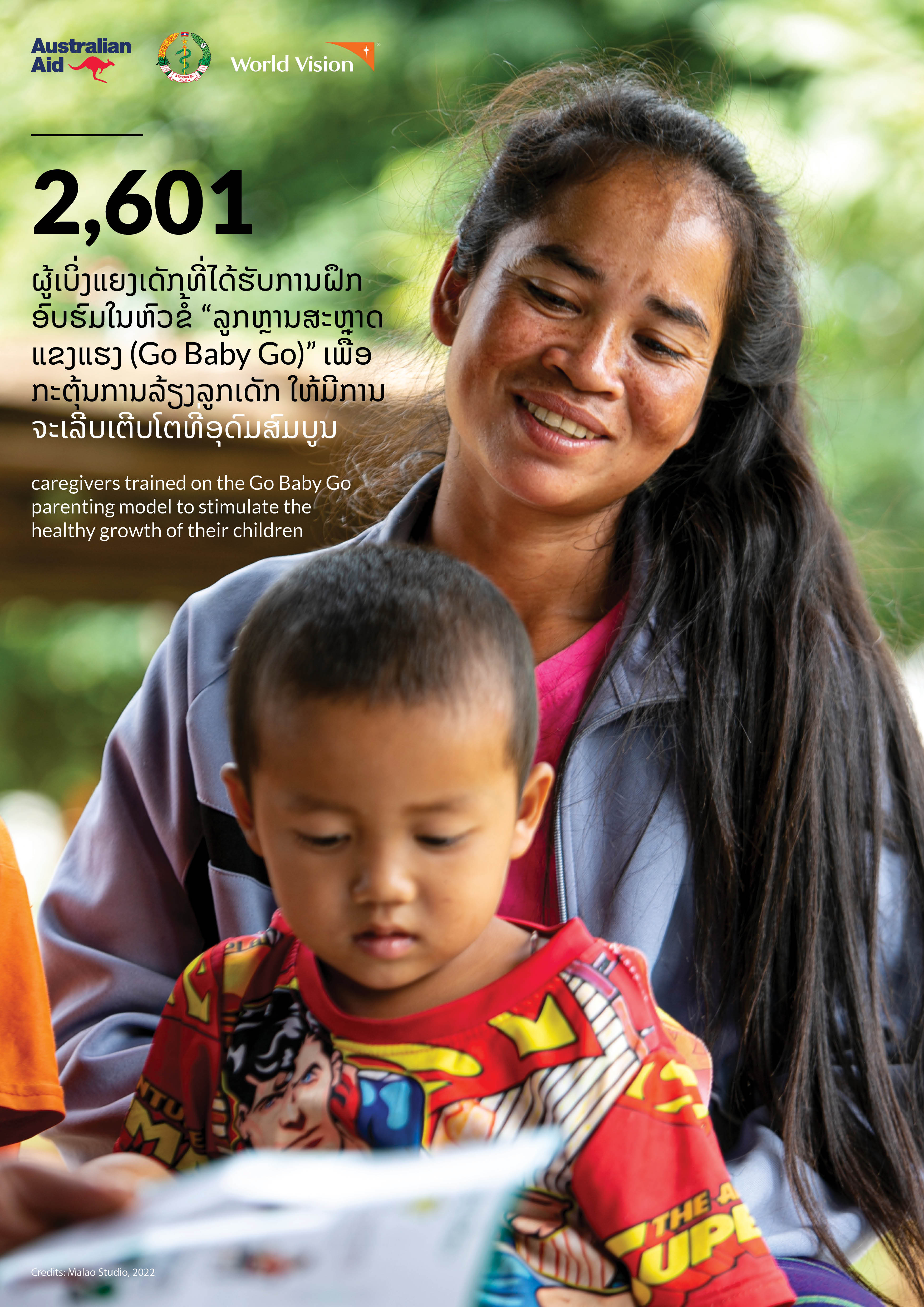
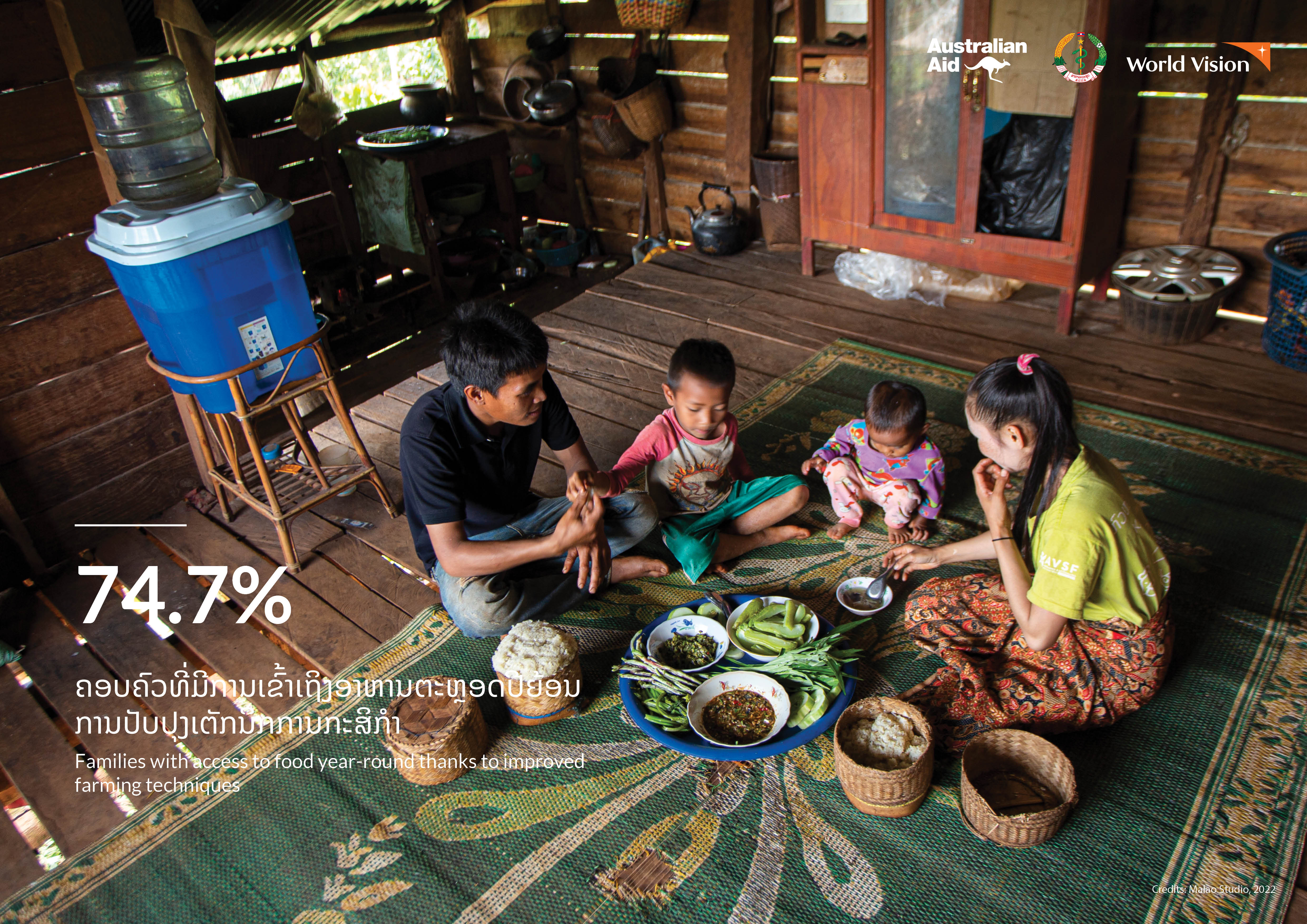
The project has brought us so many changes: water pipes directly connected to our houses, home gardens, chickens, fishes that let us eat diversified food every day, a stronger sense of hygiene with toilets flourishing in every house, more peaceful relations between husbands and wives, parents and children. But most of all, I feel that now my voice counts more than ever, and it’s a special feeling.
says Mae Phaivan, an influential woman supported by the project through various activities.
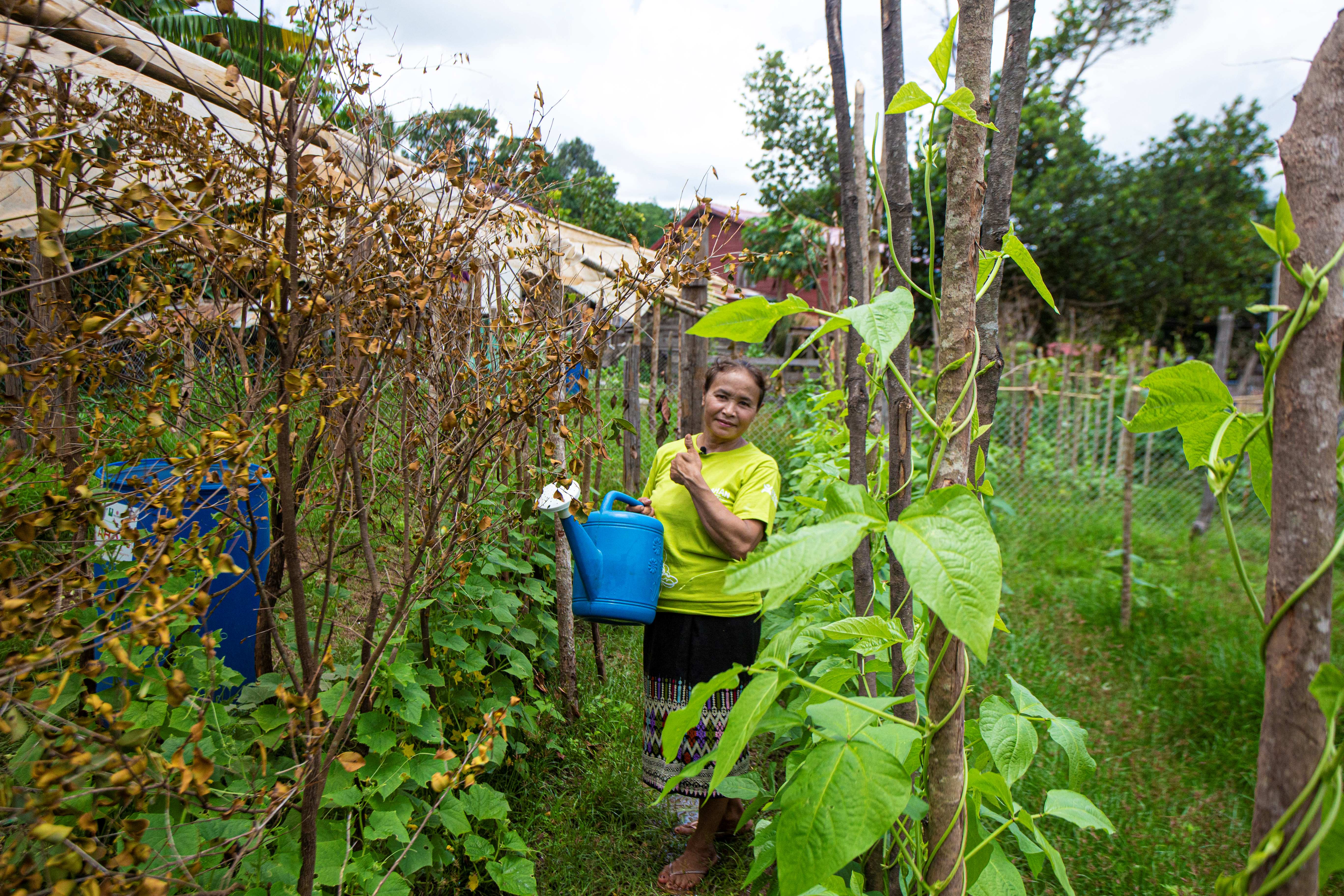
World Vision International – Mae Phaivan proudly shows her flourishing garden after learning
climate-smart farming techniques with the AHAN project in Saravane.
Now coming to an end, the five-year project is currently phasing out from the communities, leaving a durable legacy to them through new knowledge, equipment, and more importantly ownership of the activities that rhythmed their lives and changed their behaviours. Indeed, AHAN did more than pursue sustainable development goals: it created a new dynamic in the communities and Government ministries, ensuring all people have a common ground to sustain and create a better life for their children and future generations.